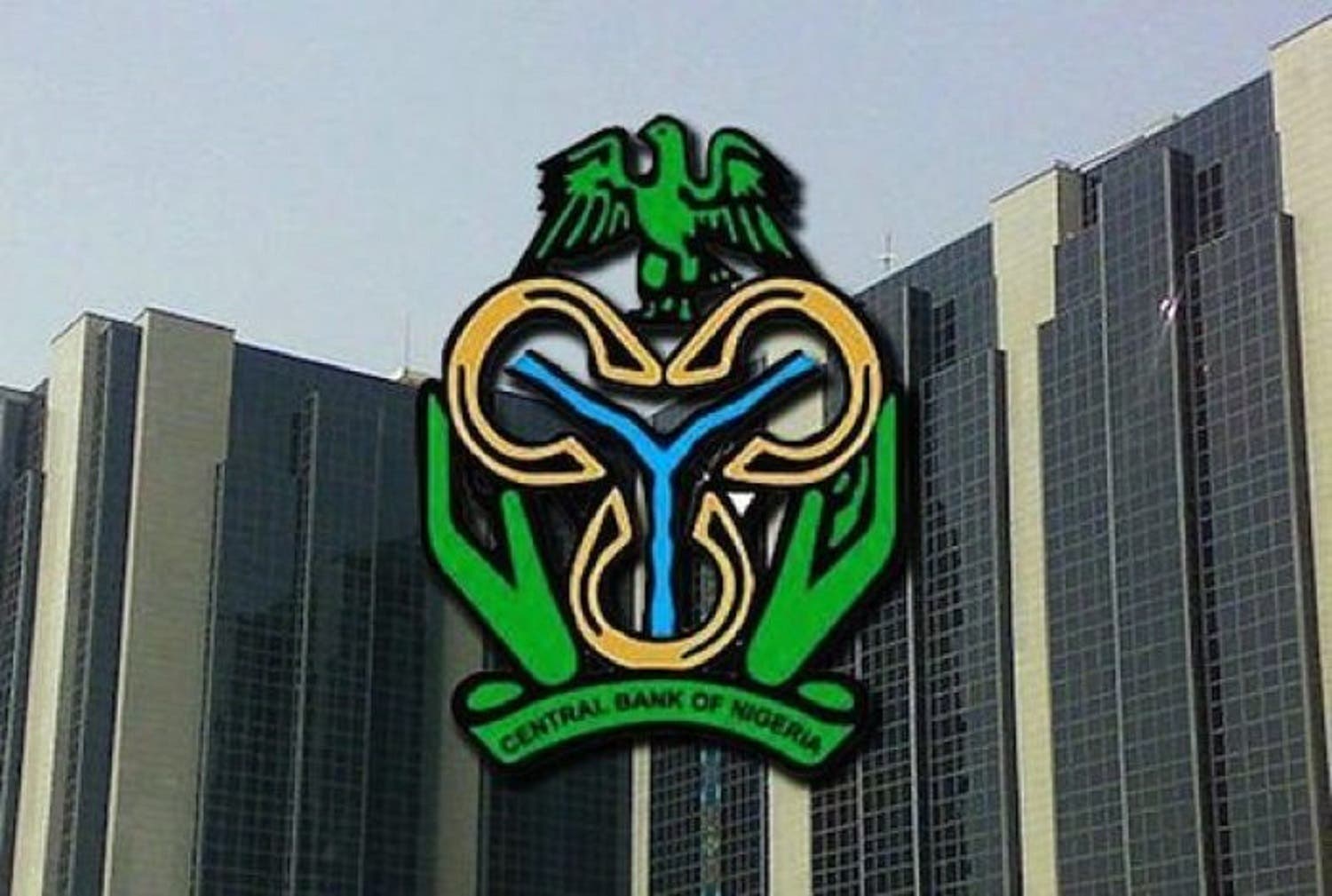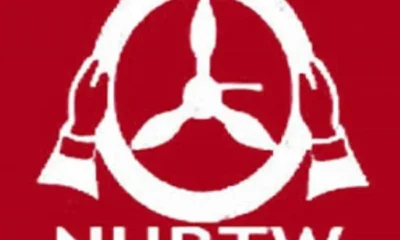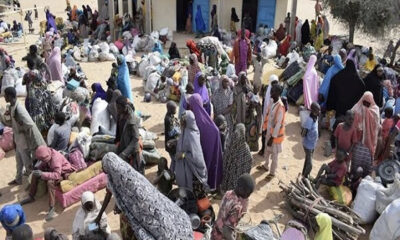News
South-South receives N333bn CBN intervention funds

The push for the people of Nigeria’s South-South region to show greater interest in the various intervention funding of the Central Bank of Nigeria (CBN) is now yielding fruits, as the apex bank has granted a total of N333.2billion intervention loans to businesses in the region.
The Governor of the CBN , Mr. Godwin Emefiele, disclosed this at the commissioning of the Rivers State Cassava Processing Plant, located at Afam/Ban-Ogoi Link Road in Oyigbo Local Government Area, Rivers State, on Thursday, last week.
Some critics had faulted the CBN for what they described as an undue concentration on a certain part of the country while neglecting some parts of Southern Nigeria.
But the CBN governor said that the apex bank has been working to boost economic activities in all parts of the country, without neglecting any region.
He said, “So far, our developmental finance initiatives at the Central Bank of Nigeria have been focused on creating an enabling environment that will drive both public and private sectors participation in the real sector with strategic deliverables around price stability, job creation, financial inclusion, import substitution and accretion to foreign reserve among others.
“Our interventions seek to improve access to credit for households and businesses which will enhance productivity and create value across a wide range of economic activities. Our interventions have cut across key sectors such as agricultural, manufacturing, health, and infrastructure. So far, the sum of N333.196 billion has been disbursed to various projects in the South-South region covering activities in these different economic sectors.
“Land development has been identified as a major constraint to increase in agricultural activities in the Southern parts of the country due to its topography. As a result, the CBN has partnered with several States Governments in the Region under the Accelerated Agricultural Development Scheme (AADS).
“The sum of N7.436 billion has been accessed by four States in the South-South regions to open up more land for cultivation, create access roads to agricultural lands, and provide infrastructure among other support services in the region. These measures are helping to induce greater activity in the agricultural sector and are enabling the movement of goods from farm to factories, and to the markets.”
Mr. Emefiele added that funds have been made available for States governments in the region that want to use the bank’s facilities to clear agricultural lands for their farmers, given the difficulties of the environment.
$ 580m cassava by-products import
Speaking of the cassava processing plant, the governor said that he would encourage more of its type in the region and across the country, in order to generate more employment and reduce imports of cassava derivatives.
According to him, “Another key benefit of this facility is the impact it could have on improving local sourcing of inputs for households and businesses. With the ability to process over 45,000 tons of cassava, this facility will provide high-quality cassava flour for households, industries and bakeries. Notwithstanding our position as the largest producer of cassava in the world, Nigeria imports over $580m worth of cassava by-products.
“With facilities such as this, it will help in reducing our reliance on imports of cassava by-products, which serves as a key input in the production of food items in several factories.
“The Central Bank of Nigeria is keen on encouraging similar projects like this, given the headwinds that we have faced over the past year. As we are all aware, the impact of the coronavirus pandemic along with the 60 percent decline in crude oil prices in the 1st half of the year had a significant effect on the Nigerian economy.
“With over 80% of our export revenues coming from the sale of crude oil, the drop in crude prices along with the imposition of the lockdown measures had a significant constraint on GDP growth. This impact led to the Nigerian economy falling into recession in the 3rd quarter of 2020.
“The emergence of the Nigerian economy from the recession in the 4thquarter of 2020, and the recent report that the economy continued to experience positive growth in the 1st quarter of 2021 was due to significant growth in the agricultural and manufacturing sectors. Given the multiplier effects of these two sectors on growth, employment, and wealth creation, it is imperative that we continue to encourage more investment in these critical sectors of our economy.
“Principal agencies of government at the federal and state level should continue to work hand in hand towards diversifying our economy and creating an enabling environment for further investment by firms such as the Rivers Cassava Processing Company.
“With deliberate emphasis on reducing our dependence on the oil sector, agriculture and the manufacturing sectors have emerged as key catalysts for reducing unemployment and driving growth in Nigeria. With the decline in our foreign exchange earnings, we can no longer afford to support continued importation of items that can be produced in Nigeria.
“Our current situation has also made it imperative for the Central Bank to work towards supporting programs that will enable greater cultivation and processing of key agricultural commodities in Nigeria.”
Rivers gets N13bn
Governor Emefiele disclosed that Rivers State has received a total of N13 billion from various intervention programmes of the CBN and urged other states in the region to emulate Rivers State.
“So far Rivers State has accessed over N13bn from our various intervention programs and their loan status remains in good standing.
“The CBN remains committed to working with the state government in supporting small holder farmers and processors across other commodities such as cassava, palm oil and fisheries.
“In the case of Rivers Cassava Processing Company, the Anchor Borrowers Program can be leveraged on to support improved supply of cassava for this facility.”
Mr. Emefiele commended Rivers State for being up-to-date in the re-payment of its loans.
Wike challenges Rivers people on loan utilisation
In his address , the Governor of Rivers state, Barr. Nyesom Wike, challenged Rivers state indigenes to utilise bank loans in productive economic activities.
“When we came on board in 2015, we knew that in order to cushion the effects of the dwindling oil revenue, we had to assist our people to obtain loans with which to go into various economic activities.
“We gave out not less than N5 billion but not up to.1 per cent was put into effective use.
“So we said look, the best we can do is to complete this factory and see how to raise employment and provide a ready market for cassava farmers in the state.
“This project will employ 150 people and 3 ,000 farmers will sell cassava directly to the company.
“We have a vast land. Apply to us that you want money that you want to grow cassava and we will facilitate your loan. We will make sure you have it. Stop depending on council money. It will not help you,” he said.
In his remarks, the Minister of Agriculture and Rural Development, Alh. Sabo Nanono, said that Nigeria has been spending huge sums in foreign exchanging to import wheat flour, annually, and that it is time to substitute it with high quality cassava flour.
He said the nation was targeting 60 per cent wheat flour import by 2030 and that the cassava farmers in Rivers State would readily benefit from it.
The minister pledged to support the farmers with high yielding cassava stems developed by the National Root Crops Council.
News
NDIC jacks up deposit insurance cover from N500,000 to N5m

NDIC jacks up deposit insurance cover from N500,000 to N5m
The Nigeria Deposit Insurance Corporation (NDIC) has announced a significant increase in the maximum deposit insurance coverage levels for Deposit Money Banks (DMBs) and other financial institutions, effective immediately.
During a press conference in Abuja on Thursday, NDIC Managing Director Bello Hassan disclosed, “For Deposit Money Banks, the increase of the maximum deposit insurance coverage from N500,000 to N5,000,000, would provide full coverage of 98.98% of the total depositors compared with the current cover of 89.20%. In terms of the value of deposit covered, the revised coverage would increase the value of deposits covered by deposit insurance to 25.37% compared with the current cover of 6.31% of the total value of deposits.”
READ ALSO:
- Hoodlums set Lagos market on fire during bloody clash
- Man shot dead during fuel queue in Lagos
- UniAbuja: ASUU declares indefinite strike over disagreement with varsity management
Hassan further explained, “The increase of the maximum deposit insurance coverage for primary mortgage banks from N500,000 to N2,000,000 would provide full coverage of 99.99% of the total number of depositors and would increase the value of deposits covered by deposit insurance to 43.10% of the total value deposits from the current cover of 40.60%.”
Additionally, Hassan noted, “The increase of the maximum deposit insurance coverage for subscribers of Mobile Money Operators from N500,000 to N5,000,000 per subscriber.”
NDIC jacks up deposit insurance cover from N500,000 to N5m
News
Drama as Delta workers boo Gov Oborevwori over minimum wage

Drama as Delta workers boo Gov Oborevwori over minimum wage
Delta State workers expressed their disappointment with Governor Sheriff Oborevwori on Wednesday as he failed to address the issue of minimum wage during the 2024 May Day celebration in Asaba, themed “People First.”
Anticipating news on the minimum wage, the workers were disheartened when the Governor concluded his speech without mentioning it, prompting them to chant, “no, no, no, we no gree, pay us our minimum wage.”
Despite the interruption, Oborevwori stood firm, stating, “Listen to me, listen to me, calm down, calm down, you cannot cajole me.”
The celebration, which included a march past by various affiliate unions, turned sour due to the workers’ dissatisfaction with the governor’s silence on the wage issue.
READ ALSO:
- Neighbour, son beat mother of four to death in Edo
- London sword attack leaves British-Nigerian teenager dead
- Lagos uncovers 86 rooms under Ikoyi bridge where tenants pay N250,000 rent
According to a union leader, previous attempts to address the matter with the Governor proved futile.
In response, Governor Oborevwori announced plans to establish a committee to address the workers’ demand for salary increases amidst prevailing economic challenges. He praised the workers for their support and assured them of his administration’s commitment to workers’ welfare.
“I have listened attentively to your requests, and I have taken note of them; they are, no doubt, legitimate demands and as a responsible government, I will deliberate with my team on how best to address them within the limits of the resources available to us,” he affirmed.
In a statement delivered by Comrade Goodluck Ofobruku, the State Chairman of the Nigeria Labour Congress, NLC, he emphasized the importance of politicians keeping their promises, stating, “We want promise keeper politicians because, as workers, we keep records of promises.”
Drama as Delta workers boo Gov Oborevwori over minimum wage
News
Two million bank accounts closed over BVN, NIN, others

Two million bank accounts closed over BVN, NIN, others
Commercial banks in Nigeria closed 2.021 million bank accounts in the first quarter of 2024, Q1’24, to clean their books of questionable accounts and comply with regulatory orders on the linkage of bank accounts to the National Identity Number, NIN.
This is contained in a report by the Nigerian Interbank Settlement System, NIBSS, which also indicated that the number of inactive bank accounts grew month-on-month, MoM, by four million or 2.0 per cent to 19.7 million in March 2024 from 19.3 million in the previous month, February.
A bank account is classified inactive when it records zero transactions including deposits, withdrawals, transfers or point-of-sale transactions for six months.
READ ALSO:
- Senate insists on 16 years as requirement for tertiary institution admission in Nigeria
- Minimum wage: Labour threatens nationwide strike by end of May
- UCL: Füllkrug gives Dortmund 1-0 first-leg win over PSG
However, details of the “Industry Bank Account Database”, a monthly data reported by banks, and compiled by the Nigerian Interbank Settlement System, NIBSS, also indicated that the number of active bank accounts grew by 6.62 million or 3.0 per cent to 219.64 million from 213.02 million in February.
Recall that in December 2023, the CBN issued a directive to all commercial banks in the country to restrict tier-1 accounts without proper Biometric Verification Number, BVN, and National Identity Number, NIN, that are not linked by Thursday, March 1st, 2024.
According to NIBSS data on BVN enrollment count, 61.6 million Nigerians have BVN as of April 2024.
Two million bank accounts closed over BVN, NIN, others
-

 metro2 days ago
metro2 days agoLabour Day: Nigerian workers are dedicated, resilient, says NURTW leader
-

 Education3 days ago
Education3 days agoBREAKING: JAMB releases 2024 UTME results
-

 Auto22 hours ago
Auto22 hours agoAppeal court takes over NURTW case as NIC withdraws
-

 News2 days ago
News2 days agoAmid fuel scarcity, petrol marketers threaten to withdraw services over ₦200bn debt
-

 Sports3 days ago
Sports3 days agoFinidi George appointed Super Eagles head coach
-

 metro7 hours ago
metro7 hours agoSecurity forces, vigilantes arrest kidnapper terrorising communities in Kogi
-

 News2 days ago
News2 days agoFG set to repatriate 20,000 Nigerians from Chad, Cameroon
-

 metro2 days ago
metro2 days agoWoman arrested in Ogun after husband commits suicide






















